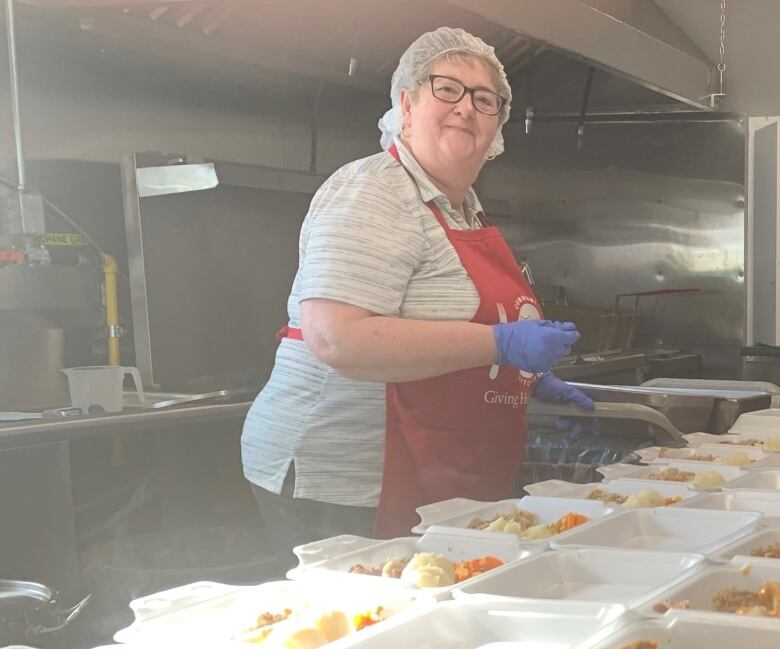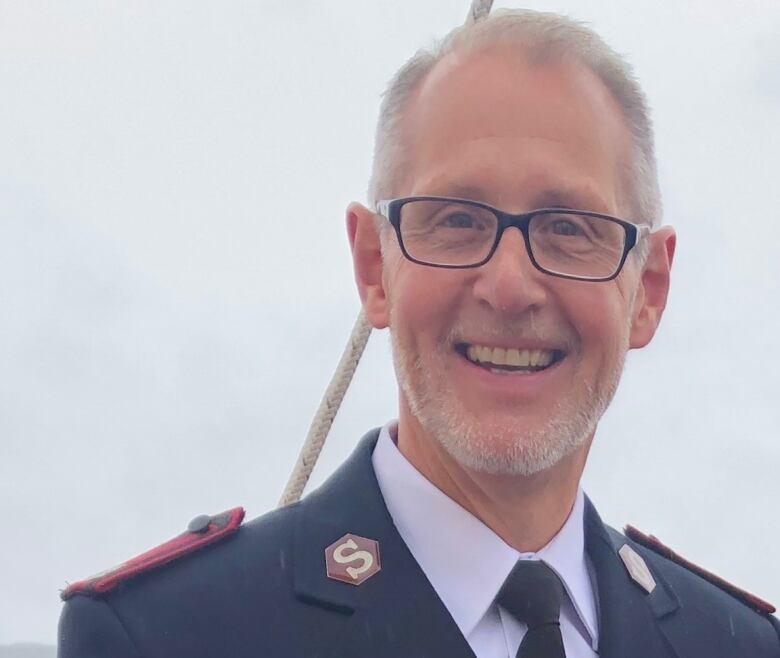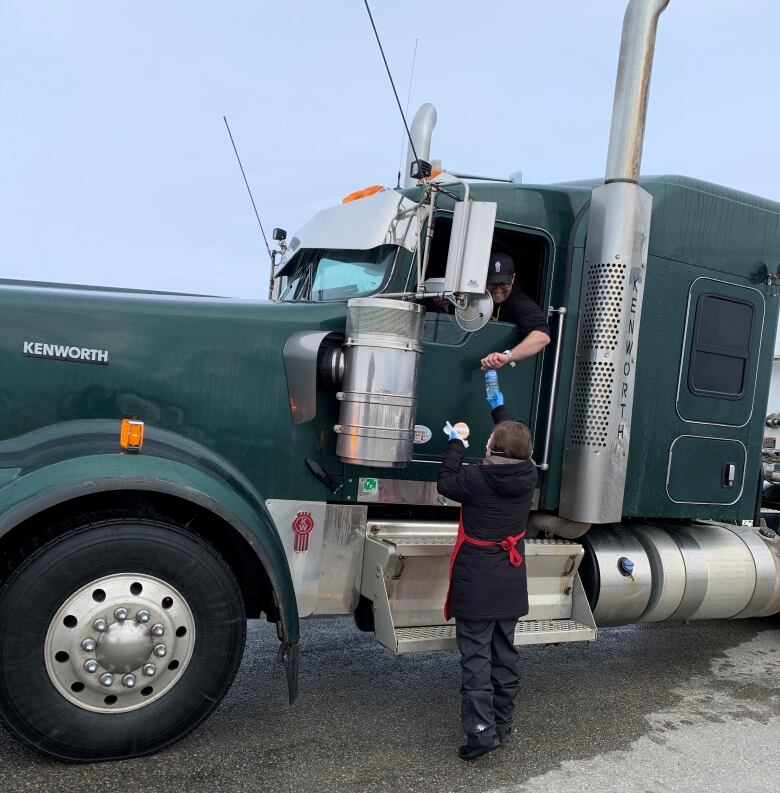In it for the long haul: Salvation Army dishing up hot meals for truckers
Volunteers making dozens of meals a dayto feed the people who are a crucial part of the supply chain

Salvation Army volunteers are making dozens of meals a dayto help feed the people who are a crucial part of the supply and distribution lines for the island.
And like the truckers they're serving up hot meals for, they say they're in it for the long haul.
"This is about making a difference. It's about meeting a need at such a time as this. These are dark and difficult days. We just want to do our part," said Salvation Army spokesperson Rene Loveless.
"These meals are hearty meals and they're substantial meals like hot turkey dinner, like roast beef dinner."
The staging ground for the operation is the newly upgraded commercial kitchen at the church building in Port aux Basques. Marine Atlantic gives the volunteers the heads up for the numbers of truckers booked for each crossing.
Meals are then transported from the church to the visitor centre parking lot on the outskirts of the town.

A generator has been set up and a microwave plugged in so the meals can be reheated on site.
Loveless said physical distancing measures and protective equipment are all in place as the meals are delivered to the drivers.
"They don't have to get out of their vehicle. They feel safe. Our volunteers feel safe," he said."They're very thankful, we know that. And we're glad that we're able to help them this way."
Lots of appreciation
One of those appreciative truckers is Tony Power.
"It means a great deal. Just a total stranger greeting you on the side of the road with a hot meal. You don't see that everyday," Power told The St. John's Morning Show.
Power said the routine is far different from normal under the pandemic one that means a lot of time alone.
"You're only getting out of your truck when you have to. You're not in, hanging around chatting in a restaurant or at the boat if you're waiting. Just total isolation," said Power, adding it also means fewer stops along the way.
Increase in stress
Taken all together, it's made each journey much more stressful.
"You are worried. Every person you see around, you're kind of drawn back, trying to keep your distance," said Power. "I could be carrying it, I would not want to spread it to someone else. I would not want to pick it up from anybody else."
Power said he's always been carefulabout being clean and hygenic so under the pandemic he's just doing more of what he has always done including wiping things down.

"Every time I move in and out of my truck, just constantly inspecting your hands, wiping off your door, wiping off your wheel," said Power.
Cliff Rowe, the operator of Fogo Island Freight, echoed Power's thoughts.
He said the sense of worry about safety because of COVID-19 has led to a heightened sense of awareness among truck drivers on the need to keep things cleaner than normal.
Uptick in kindness
He also said there's been an uptick in kindness shown to drivers.
"I got a driver there in Labrador. I think somebody left a lunch on his step there where he gets into his truck, which was very thoughtful," he told CBC Newfoundland Morning.












_(720p).jpg)


 OFFICIAL HD MUSIC VIDEO.jpg)
.jpg)



























































































